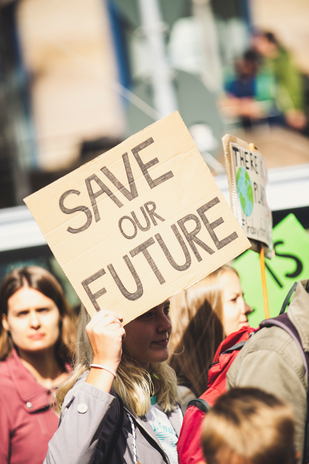We’re living in a time which is littered with human rights abuses and regressive behaviour. The riot at the US Capitol, seeing rankly racist individuals attempt to destroy democracy; the Free School Meal scandal, with the Government leaving students hungry; mass surveillance; digital data scandals; torture and institutional injustice, to name few.
Over the past weeks and months, there has been a continued lack of engagement and detachment from the wider world. But it’s so important for the sake of social progression, kindness and humanity, that we keep being socially aware, and fight human rights abuses.
1. Learn
The first step to become more socially aware is by keeping an open-mind, and learning about what’s going on in the world. This doesn’t necessarily mean reading a broadsheet newspaper with your coffee in the morning, but follow the news. Social media accounts to follow include Simply Politics, Amnesty International, BBC News and Statista, to name a few.
In terms of learning, a second strand and complexity is political bias. Newspapers and commentaries often include a political standpoint. Due to a growing social polarity in terms of politics, discourse between political leanings has dwindled. Therefore, instead of sticking to the Guardian, or sticking to the Telegraph or Mail, why not have a quick scan of both? Not every day, not every minute, but be aware that the news that you are absorbing may be fostering social division meaning that there is a lack of understanding of the opposing viewpoint.
2. Engage
We’re currently in a pandemic, meaning physical and direct action is difficult to actuate. But, you can engage in a plethora of online events, forums and non-direct action platforms. Activism takes shape in a variety of ways; it could be tweeting or re-tweeting about a cause you’re passionate about, or even investigate NGO’s and join in on some of their work.
But the easiest, and perhaps more student-friendly thing you can do is engage with Bristol SU. Their Liberation Networks (Multifaith, BAME, Black Student’s, Women’s, LGBTQ+, Trans, Widening Participation, Care Leaver’s, Mature Students and Disabled Students) are putting in so much time and energy to create some brilliant virtual events, socials, panels and talks about a range of issues. These Networks put on their own free events, as well as open collaborations, which are readily accessible and would all really love more engagement!
Sometimes, it takes one step to understand the experiences of other ethnicities, sexualities and experiences to change an attitude, even though you may never understand the exact lived experience.

3. Discuss
Misinformation and lack of engagement stems from ignorance. Talk to your friends, family, colleagues and peers about issues you’re passionate about. Learn about the experiences about other students in open-discussion and a non-patronising voice, but most importantly; be kind.



